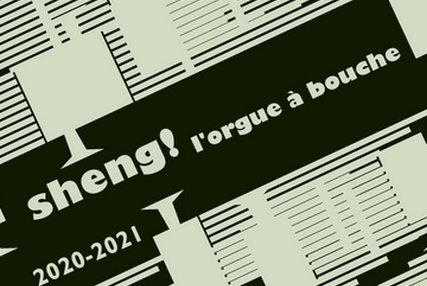L'après-midi s'articulera entre deux sessions :
Comparaison du fonctionnement du sheng et du khène - Que nous apporte la visualisation de la vibration des anches et retour sur plusieurs résultats exposés précédemment ?
avec René Caussé (Ircam - STMS)
Le khène et le sheng, tous deux appartenant à la famille des instruments à anche libre, présentent de nombreuses différences à la fois dans la construction (nombre de tuyaux, position de l’anche, embouchure de la boîte à vent, etc.) et dans la relation entre les fréquences de résonance des tuyaux et celles des anches associées. Une des conséquences principales de ces différences se traduit dans la composition spectrale des sons émis.
Dans la deuxième partie de cet exposé nous reviendrons sur plusieurs résultats exposés dans les présentations précédentes en particulier sur l’influence de la longueur du tuyau sur l’oscillation de l’anche et sur le rôle joué par les « résonateurs » du sheng.
Pour terminer nous présenterons quelques visualisations de la vibration des anches et aborderons l'apport de ces visualisations à la fois pour la compréhension du fonctionnement de l’instrument mais également pour l’étude des différentes techniques de jeu.
Caractérisation spectrale des sons de sheng: entre interactions, adaptations et technique instrumentale
avec Julie Delisle (Université de Montréal) et Mikhail Malt (Ircam - IReMus)
Si la sonorité du sheng est indubitablement vivante, pour certains instrumentistes, le sheng lui-même est doté d'une vie qui lui est propre, en raison de ses particularités structurelles, des contraintes qu'il impose et de sa manière de réagir à l'énergie qui lui est insufflée par son interprète. Cette communication vise à présenter nos premiers résultats de recherche, obtenus à partir d'une démarche d'analyse du signal sonore dont le but est de caractériser en termes acoustiques les indices de cette interaction constante entre le sheng et la personne qui en joue.
C'est la collaboration avec deux musiciens experts du sheng, Wu Wei et Li Li-Chin, qui nous a permis de nous familiariser avec l'esthétique et la technique instrumentale du sheng, ainsi qu'avec les défis qu'elle amène, tant dans le cadre d'une pratique quotidienne que dans le contexte d'une écriture musicale qui évolue rapidement et qui pousse les instrumentistes à sans cesse développer de nouveaux aspects de leur jeu, dont la polyphonie. De plus, une série d'échantillons sonores enregistrés par Li Li-Chin, comportant des notes individuelles, différentes articulations et techniques d'inflexion et de modulation du son, des intervalles et des combinaisons de notes, ont été analysés grâce à différents algorithmes permettant d'extraire des descripteurs de timbre.
Dans un premier temps, nous reviendrons sur les principales caractéristiques spectrales du sheng, notamment en lien avec l'harmonicité et la rugosité du timbre, ainsi qu'avec leur évolution temporelle. Ensuite, nous explorerons les possibilités polyphoniques de l'instrument, ainsi que les phénomènes qui sont en cours lors de la mise en vibration de plusieurs tuyaux en simultané. Enfin, plusieurs aspects de la technique instrumentale du sheng seront examinés du point de vue des paramètres de jeu, puis on en détaillera les caractéristiques acoustiques et les variations possibles.
Contact | contact(at)tpmc-paris.com



